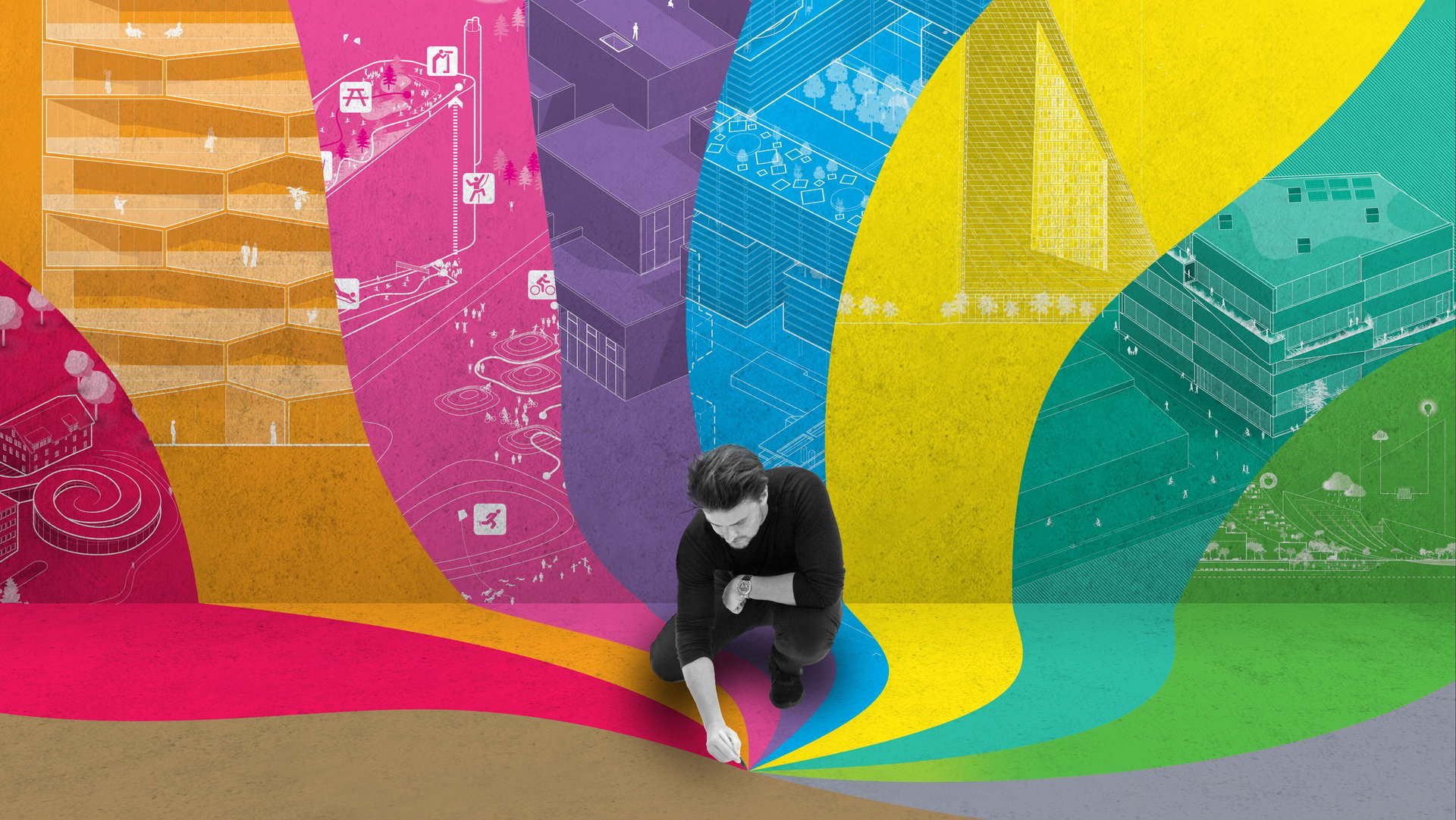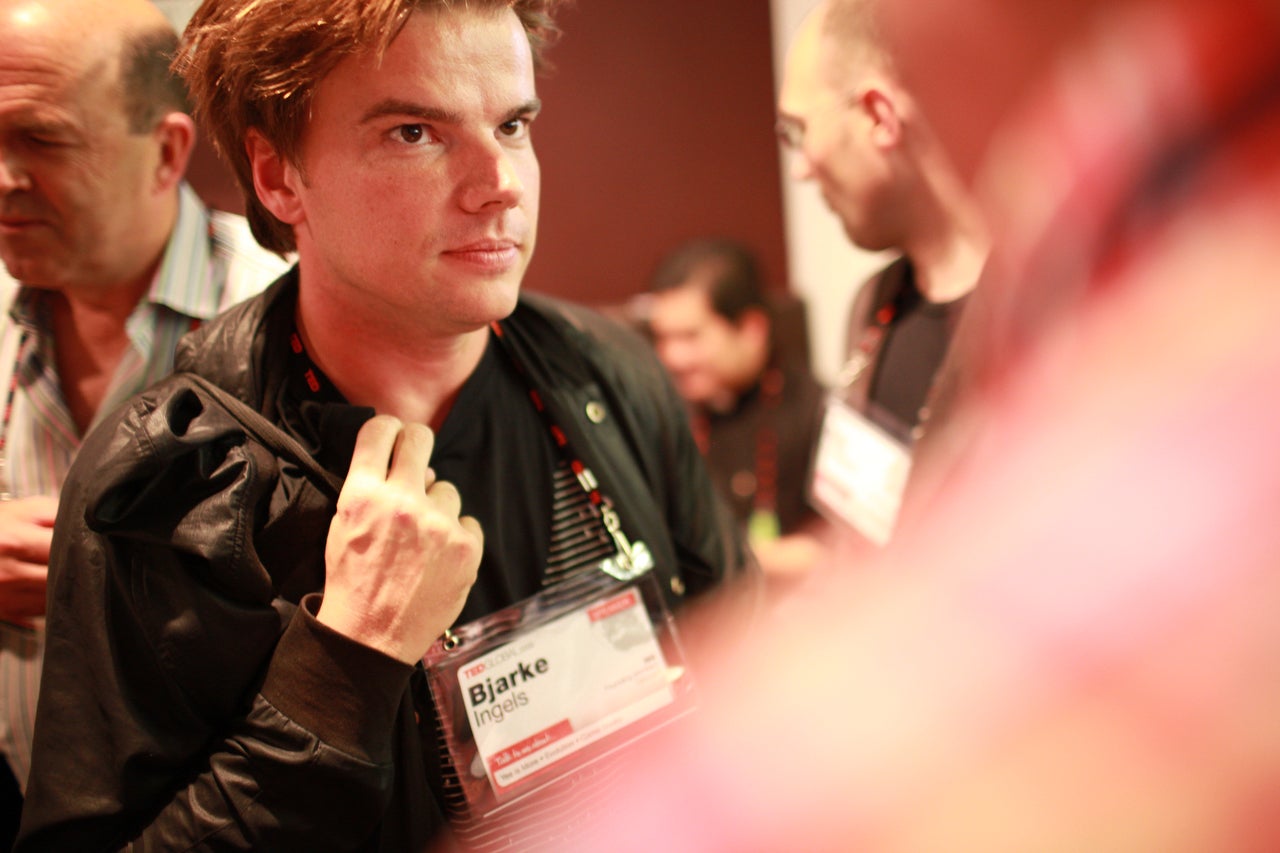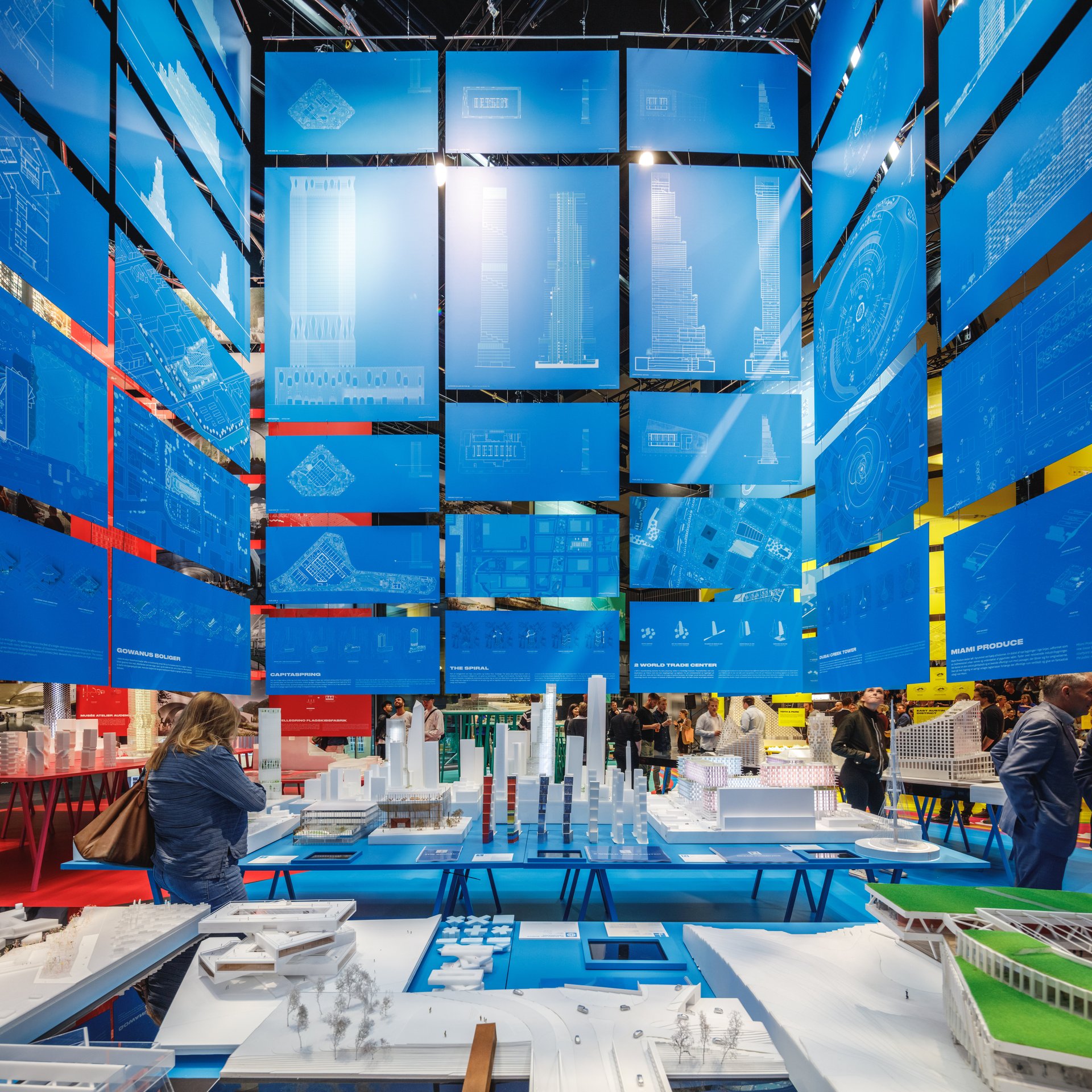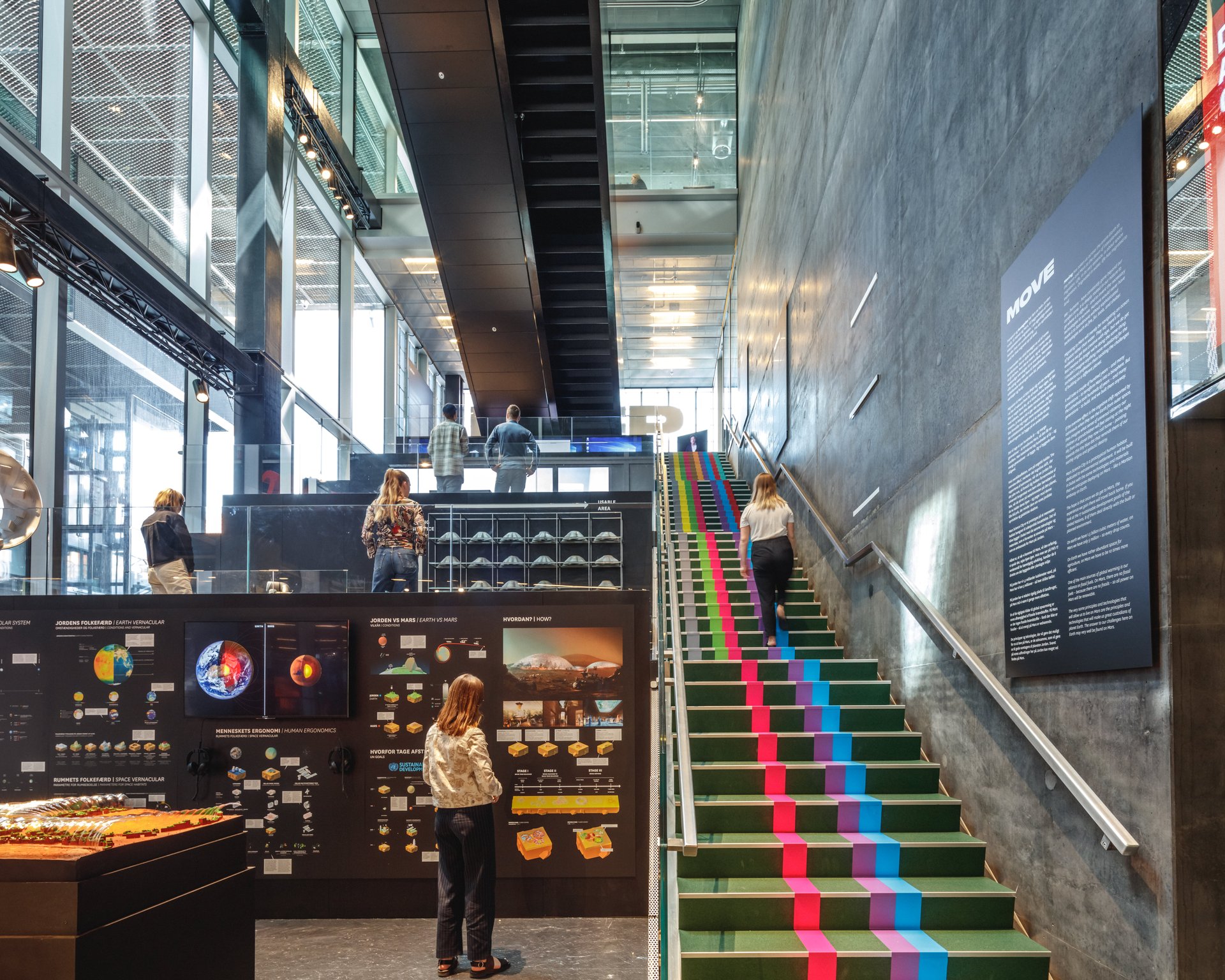Architect Bjarke Ingels is already designing for 130 years in the future
Bjarke Ingels isn’t known for doing anything small. The charismatic Danish architect first captivated a wide audience with a 2009 TED talk featuring slogans like “yes is more” and “hedonistic sustainability,” since watched by 2.3 million. He’s an outlier in the typically sedate world of architecture, and one who’s hard to ignore.


Bjarke Ingels isn’t known for doing anything small. The charismatic Danish architect first captivated a wide audience with a 2009 TED talk featuring slogans like “yes is more” and “hedonistic sustainability,” since watched by 2.3 million. He’s an outlier in the typically sedate world of architecture, and one who’s hard to ignore.

Affable, analytical, and easy on the eyes, the 44-year-old is a bonafide media sensation. There are the magazine covers, books, sold-out lectures, primetime interviews, and even a flashy Netflix documentary—typically only lavished on select established veterans.
His eponymous firm BIG-Bjarke Ingels Group (with a URL to pique Freudian psychoanalysts: big.dk) have their sights on even bigger prospects. Aside from building skyscrapers, condominiums, museums, stadiums, and parks in four continents, they’re intent on writing a comprehensive masterplan for the entire planet. In one of two TED talks this year, Ingels discussed the viability of building on Mars. And it’s not just speculative architecture either. BIG recently hired Scott Moon, a former SpaceX rocket scientist, to work on various Mars exploration projects and a hyperloop connecting Abu Dhabi and Dubai in time for the World Expo in 2020.
There’s no shortage of critics who bristle against Ingels’s quest to blanket cities with “pragmatic utopias,” as he calls it. Some in the architecture establishment loathe BIG’s tendency to propose “over-programmed” structures—architecture speak for buildings that are too packed with an array of seemingly discordant features. For example: a football stadium-slash-water park-slash-artificial beach proposed by BIG design for the Washington Redskins stadium. Or a power plant that doubles as a ski slope, like Amager Bakke in Copenhagen.
But even Ingels’s harshest detractors (and competitors) can’t look at BIG’s portfolio without some measure of envy or awe. In a little over a decade, BIG has grown to a 550-person firm with offices in Copenhagen, New York, London and Barcelona. They have over 40 completed projects and an even longer list of commissions in progress. Many are represented in the firm’s recently-opened retrospective at the Danish Architecture Center in Copenhagen, which runs through January 2020.


Titled “Formgiving: An Architectural Future History from Big Bang to Singularity,” the sprawling, 14,000-foot-exhibition is jam-packed with renderings, architectural models, screens, portals, and interactive stations showcasing BIG’s ideas about the future of habitats, both earthly and celestial.

On the occasion of Formgiving’s opening, Ingels spoke to Quartz about his firm’s evolution, his ambition to author a planetary master plan and how fatherhood has helped him to look even further into the future than before.
Is there a common thread throughout BIG’s projects?
Bjarke Ingels: Yes. You can call our practice and our worldview “pragmatic utopia.” We have the power as human beings to organize all the elements of our world and society in a socially and environmentally perfect way. The power we have as architects is that we can say, yes, we’re going to give you everything you asked for and in addition to that, we’re going to give you something more—something you didn’t ask for. Now that we’ve put it forward, the world would be a lesser place without it. Typical examples I’ve shown at TED: A power plant that is so clean that we could turn the roof into a ski slope, a hiking path and a climbing wall. Or the museum that is also a bridge from one side of the sculpture park to the other. In Vancouver House, we turned the underside of the existing bridge into a Sistine Chapel of street art.

How do you get clients to expand their thinking beyond their original brief?
Architecture is about turning fiction into fact. It’s a cliché that the uncompromising creative/artist should ignore all the constraints so it doesn’t pollute the purity of their thinking. I think we have found a way where we actually turn all of the chaos of the conflicting demands [of a project] into the driving force of the design.
In a way, as an architect, when you are asked to design a school, or an apartment building, or a work space, there is almost always a standard way of doing it. It’s important to remember that things don’t become the standard by being bad. They actually become the standard by being incredibly effective at delivering a certain level of quality. Whenever we do a project, we tell ourselves: The only way to beat the standard is by being better; by addressing issues that are important but have not been identified.

What tools and resources does BIG use to improve on these standards? I noticed that you often cite scientific research in your proposals.
We do collaborate a lot with scientists. We have one rocket scientist on our team who came from SpaceX. We’re considering changing from “BIG-Bjarke Ingels Group” to “BIG LEAP.” LEAP” would stand for Landscape, Engineering, Architecture and Production. Right now, we have landscape architects, mechanical engineers, structural engineers, environmental engineers and landscape architects, horticulturalists, production designers and contractors. BIG builders, basically. To be able to act meaningfully as a creative company today, you need to absorb internally in your organization as many skillsets as possible.

Are there limits to the architect’s domain? What makes you interested in designing for the entire planet?
I think it’s interesting that the whole discussion about the climate collapse is always about declarations of intentions or opinions. They’re urgent warnings but not so much recipes or specific actionable action items. And of course, it is because the planet is such a vast entity, that it’s like a hyper object. You can’t fathom it. I think of how the “overview effect” profoundly affects astronauts when they look back at earth—it creates some kind of cognitive shift within them.
I think this is changing. Now we have companies like Planet, the company that takes daily satellite imagery from all over the planet Earth. That means that you have a high resolution information on all kinds of imagery—not just the visible spectrum, but also flows and thermal activity and other things. I think we are now at a time where we actually have the mindset, the tools, the technology, to create a holistic, multi-faceted, actionable master plan for the planet and think of Earth as a design object.
I think one of the things that I would really like to spend some serious energy on in the next couple of years is to actually make a master plan for Earth. Just like you can do a master plan for a building or a neighborhood or a city or a country, you can do it for our planet. We can do it in a way that is accessible and digestible so we can actually start agreeing on an overall approach.
You’re recently had a baby boy [Darwin, with architect Ruth Otero]. Has becoming a father altered your outlook about your work?
Becoming a father has definitely changed a lot in me. One of the funny things that I had not expected is this kind of linguistic shortcoming. I always thought it was a confusion of words that you used the word, “love” for your significant other and for children and for parents and all kinds of things, because it was always clearly not the same. But I must say that I was surprised to the extent that having a child is like a complete romantic love affair. I’m telling you, you fall madly in love with that little guy.
One thing it maybe does change is that having a child has made things more concrete. Typically, when we’re making plans for the future like climate change in 2030 or 2050 or 2100, it’s very, very abstract. You almost feel that you have to have some kind of an abstract sense of solidarity with humanity in general to feel really motivated by things so deep into the future, because in 2100, I’m probably not going to experience it myself. You know, 2050 is really going to be quite late in my life.
Has it made your work more consequential?
The Icelandic writer Andri Magnason, who is a good friend of mine, asked a question while we were hiking in Iceland one summer. Amid the disappearing glaciers, he asked: In what year do you think will the last human being you love dearly be alive?
I’m 44. Let’s give me until I’m 84, which is a relatively reasonable ambition. When I’m that age, maybe I’ll have a ten-year old granddaughter who I love. She’s my favorite granddaughter, she’s so charming, so smart, just great. I’d spend a lot of time with her and she’s then going to live until 100, let’s say. So that means that 130 years into the future, my favorite granddaughter is still going to be around and she might talk about things that I talked to her about. I imagine she might tell people once in a while the story about her grandfather. This is the year 2149.
That’s so far into the future—a hundred years further into the future than the last Blade Runner movie. It’s almost outside the charts of science fiction, right? That’s how deep into the future that someone I loved dearly in my life is still going to be around. So our sense of ownership and responsibility for the future reaches much further than we imagined in a very intimate, mammalian way. It’s no longer some kind of abstract, general good-for-society kind of way. No, no, no. People you love are going to be affected by the decisions we take today.
(This interview has been condensed and edited for clarity.)